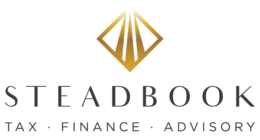Singapore is known for its business-friendly environment and low corporate tax rates, making it a popular destination for companies looking to establish a presence in Southeast Asia. In this blog post, we will take a closer look at corporate taxation in Singapore, including the country’s tax rates, exemptions, and incentives.
First and foremost, it’s important to note that Singapore’s corporate tax rate is currently at 17%, one of the lowest in the world. This rate applies to both resident and non-resident companies, and it is levied on a company’s taxable income. Singapore’s corporate tax system is also based on a single-tier system, which means that dividends paid to shareholders are not subject to additional taxation. This makes Singapore an attractive destination for companies looking to retain earnings and reinvest them in the business.
In addition to the low corporate tax rate, Singapore also offers a range of exemptions and incentives to companies looking to do business in the country. One of the most popular incentives is the Pioneer Incentive, which provides tax exemptions for companies engaged in certain activities that contribute to the development of new or enhanced industries in Singapore. Another incentive is the Development and Expansion Incentive, which provides tax exemptions for companies that invest in the expansion or development of existing operations in Singapore.
Companies that operate in the biotech, clean energy, and information and communications technology (ICT) sectors may also be eligible for additional tax incentives under the Singapore government’s Industry Development Incentive scheme.
In addition, Singapore has also signed comprehensive avoidance of double taxation agreements with more than 80 countries, which help to prevent double taxation of foreign-sourced income. This makes Singapore an attractive location for companies looking to do business in multiple countries.
Overall, Singapore’s low corporate tax rate, range of exemptions and incentives, and comprehensive network of double tax agreements make it an attractive destination for companies looking to establish a presence in Southeast Asia. It’s a great destination for businesses to grow and expand and also for foreign investment.
It’s worth noting that Singapore’s tax laws are subject to change and it is important to consult with a tax professional for the most up-to-date information. If you are interested in learning more, feel free to reach out to the team at Steadbook.
The contents of this article are purely for informational purposes and do not constitute legal advice in any way whatsoever. Nothing published by Steadbook constitutes a legal recommendation, nor should any data or content published by Steadbook be relied upon for any legal proceedings.
Steadbook strongly recommends that you perform your own independent research and/or speak with a qualified lawyer before making any legal decisions pertaining to your company.

